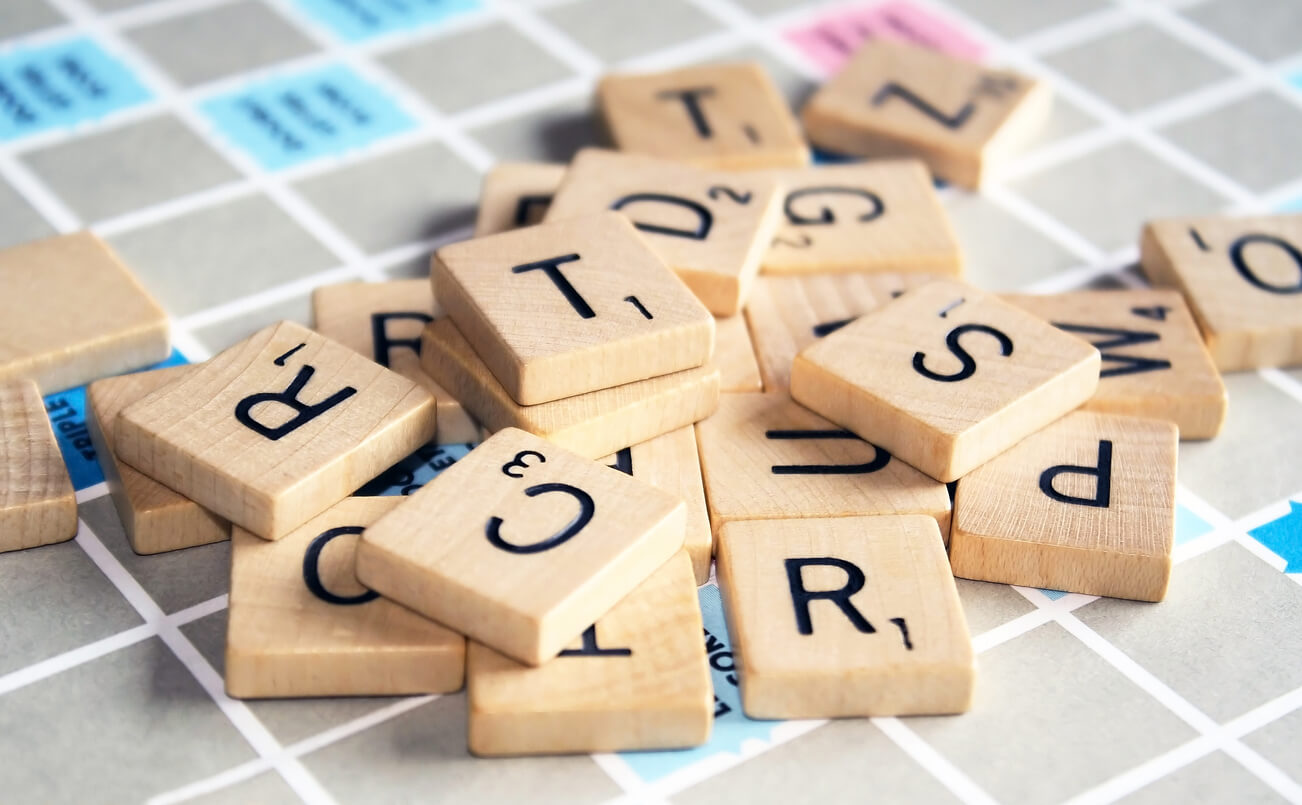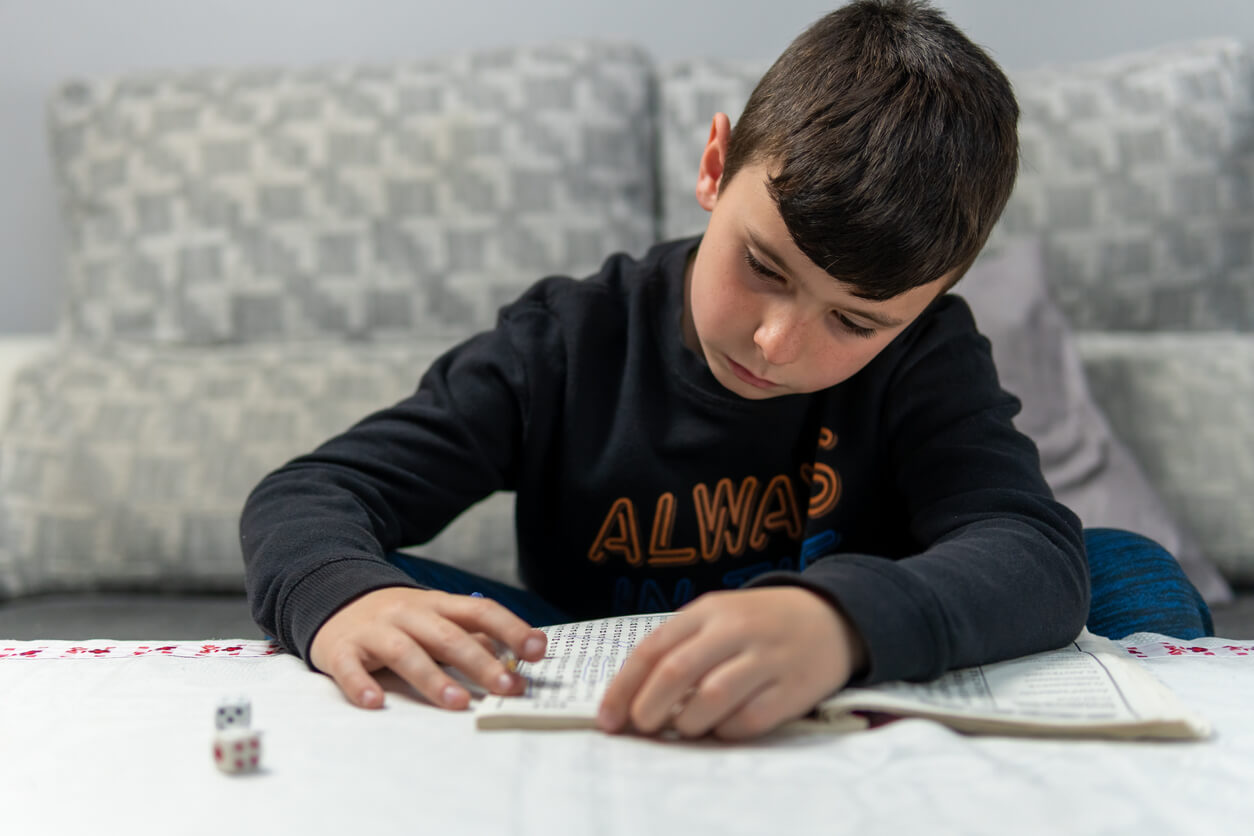5 Children's Games to Improve their Academic Performance


Written and verified by the psychopedagogue María José Roldán
It’s a well-known fact that children learn best through play. Impositions, obligations, or even daily tasks can make the little ones feel some demotivation towards any learning, even if the content is to their liking. For that reason, it never hurts to know some children’s games to improve their academic performance.
1. Hangman
Surely you remember those rainy days at school when you couldn’t go out to recess with your friends and you stayed in class to play hangman. Without a doubt, you had a good time with your friends. Everyone wanted to go out to the blackboard and enjoy this game that’s so complete and fun at the same time.
This activity invites children to think about each word deeply in order to guess it. The word presents gaps or boxes that must be filled in with different letters until the hidden term is guessed. Also, it can be made easier or more difficult according to the age and ability of the students.
It is also a great tool to expand vocabulary and add new words by looking them up in the dictionary. In this way, students will try to find the more difficult ones and, without realizing it, they’ll learn them while having a good time.
2. Scrabble

Surely you’ve played this game with your family in which forming words with tiles with different letters is the way to have fun. Depending on the letters you use, you can get more or less points. Of course, you have to follow some rules to keep score and add new words on the board.
The longer the word and the more letters it has, the more points you get. Children can look in the dictionary and, without realizing it, they’ll expand their vocabulary while having a good time with their family. In addition, you can play in any language you want, as long as you have the letters you need to form the words.
3. Word chains
You may remember playing word games or chained stories in school and you didn’t even know what they were about. These are fun games where children work on imagination, creativity, spelling, grammar, reading, and writing. Also, it’s a good way for them to learn to associate words or syllables. They can even create a story that doesn’t make sense and that later will give them a good laugh.
This type of activity also works on mental agility, creativity, and observation, in addition to everything we’ve pointed out above. All you need is a piece of paper, a pencil, and an eraser, and enjoy the ideas that pop into your head.
4. Crossword puzzles and word search puzzles
Crossword puzzles and word search puzzles are ideal for improving attention and reducing distractions. In addition, they work on such important skills as reading and writing, and of course, spelling.

5. Spot the difference
We all know how entertaining this type of game is and how it keeps us focused almost unintentionally. In addition, it brings out all that perseverance until all the differences are found. Children will work on attention, reasoning, perception, and concentration. And the best thing is that it’s an activity that can be done even with small children. You just have to adapt the difficulty of the search for differences according to the age or ability of the little ones.
Games are key to learning
There’s no need to innovate too much. Traditional games, the same ones you played when you were little, are still great tools for children to improve their academic performance. They’re fun and classic activities that can be done at any time and have a great impact on the children who play them.
In this way, almost without them realizing it, they work on important aspects such as concentration, reading, persistence, creativity, critical thinking, and observation. All of these aspects are fundamental for them to have better results at school.
It’s a well-known fact that children learn best through play. Impositions, obligations, or even daily tasks can make the little ones feel some demotivation towards any learning, even if the content is to their liking. For that reason, it never hurts to know some children’s games to improve their academic performance.
1. Hangman
Surely you remember those rainy days at school when you couldn’t go out to recess with your friends and you stayed in class to play hangman. Without a doubt, you had a good time with your friends. Everyone wanted to go out to the blackboard and enjoy this game that’s so complete and fun at the same time.
This activity invites children to think about each word deeply in order to guess it. The word presents gaps or boxes that must be filled in with different letters until the hidden term is guessed. Also, it can be made easier or more difficult according to the age and ability of the students.
It is also a great tool to expand vocabulary and add new words by looking them up in the dictionary. In this way, students will try to find the more difficult ones and, without realizing it, they’ll learn them while having a good time.
2. Scrabble

Surely you’ve played this game with your family in which forming words with tiles with different letters is the way to have fun. Depending on the letters you use, you can get more or less points. Of course, you have to follow some rules to keep score and add new words on the board.
The longer the word and the more letters it has, the more points you get. Children can look in the dictionary and, without realizing it, they’ll expand their vocabulary while having a good time with their family. In addition, you can play in any language you want, as long as you have the letters you need to form the words.
3. Word chains
You may remember playing word games or chained stories in school and you didn’t even know what they were about. These are fun games where children work on imagination, creativity, spelling, grammar, reading, and writing. Also, it’s a good way for them to learn to associate words or syllables. They can even create a story that doesn’t make sense and that later will give them a good laugh.
This type of activity also works on mental agility, creativity, and observation, in addition to everything we’ve pointed out above. All you need is a piece of paper, a pencil, and an eraser, and enjoy the ideas that pop into your head.
4. Crossword puzzles and word search puzzles
Crossword puzzles and word search puzzles are ideal for improving attention and reducing distractions. In addition, they work on such important skills as reading and writing, and of course, spelling.

5. Spot the difference
We all know how entertaining this type of game is and how it keeps us focused almost unintentionally. In addition, it brings out all that perseverance until all the differences are found. Children will work on attention, reasoning, perception, and concentration. And the best thing is that it’s an activity that can be done even with small children. You just have to adapt the difficulty of the search for differences according to the age or ability of the little ones.
Games are key to learning
There’s no need to innovate too much. Traditional games, the same ones you played when you were little, are still great tools for children to improve their academic performance. They’re fun and classic activities that can be done at any time and have a great impact on the children who play them.
In this way, almost without them realizing it, they work on important aspects such as concentration, reading, persistence, creativity, critical thinking, and observation. All of these aspects are fundamental for them to have better results at school.
This text is provided for informational purposes only and does not replace consultation with a professional. If in doubt, consult your specialist.








